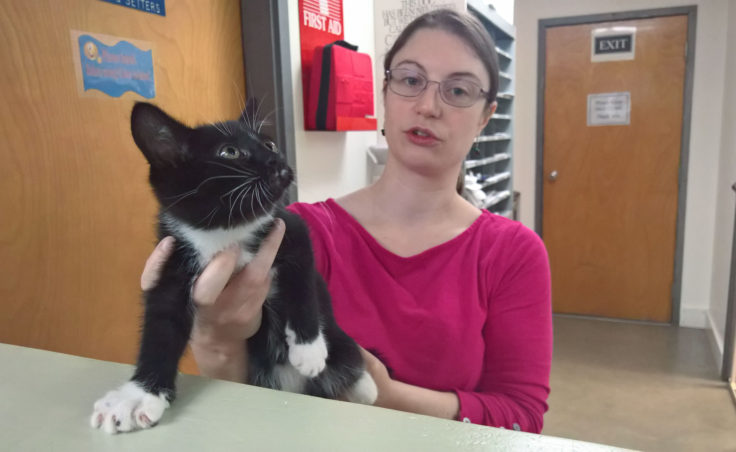Sushi is a super cute, black and white kitten that Rachel Trapp holds in one hand. In the other, she holds a gadget over the kitten. The device beeps twice and then a long identification number shows up on its readout.
“Mmhmm, yep. That’s Sushi,” says Trapp, who works the front desk at Gastineau Humane Society.
The number comes from a rice grain-sized microchip under Sushi’s skin. The chips aren’t tracking devices, but when scanned, they positively identify a specific animal, which is helpful when lost pets are found – or when problematic ones are wrangled.
Juneau’s animal control officials want mandatory microchipping of pets they deem “potentially dangerous or dangerous,” and the Juneau Assembly is considering an ordinance with the microchipping requirement at the committee level on Monday.
Sushi probably doesn’t fit the legal definition of a “dangerous” animal, but the humane society chips animals in its care as a matter of course and encourages pet owners to do it voluntarily. At Gastineau Humane Society, it costs $40. Veterinarians also offer microchipping service.
Gastineau Humane Society handles the city’s animal control services under contract. In a memo to assembly members, executive director Matt Musselwhite says the microchipping requirement and other proposed changes to pet codes are in response to “an incident involving a dangerous dog or compliance issues with the animal’s owner.”
Violators would be subject to fines and citations issued by animal control officers.
According to Musselwhite, many other states have similar microchipping requirements for dangerous dogs. In California, New York and several western European countries, microchips are required for all dogs.
The ordinance is on the agenda for Monday’s Juneau Assembly Committee of the Whole. It meets at 6 p.m. at city hall.

